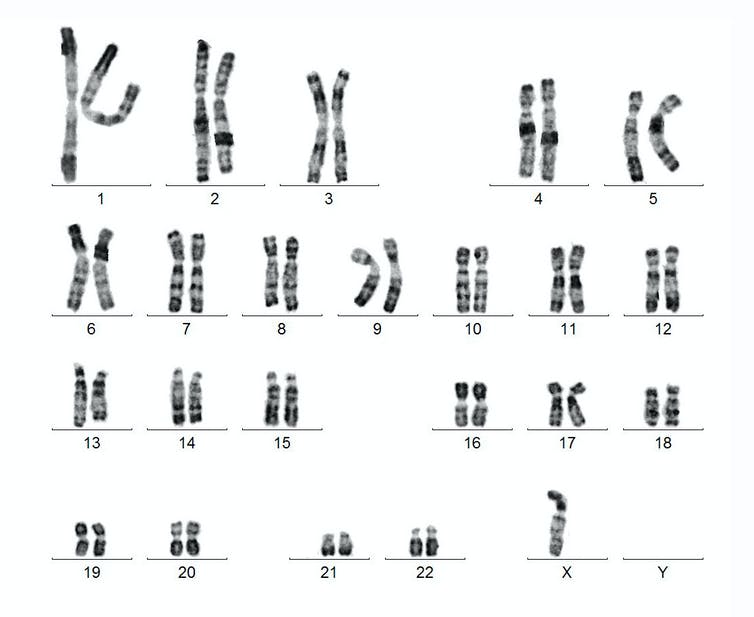The Research Brief is a short take about interesting academic work.
The big idea
The Y chromosome can be lost through the process of aging, and this can lead to an increased risk of heart failure and cardiovascular disease, according to a recent study my colleagues and I published in the journal Science.
While most women have two X chromosomes, most men have one X and one Y. And many people with Y chromosomes start to lose them in a fraction of the cells in their body as they age.
While loss of the Y chromosome was first observed in 1963, it was not until 2014 that researchers found an association between loss of the Y chromosome and shorter life span. Y chromosome loss has since been linked to a number of age-related diseases, such as cancer and Alzheimer’s disease. However, it has been unknown whether this loss is just another benign indicator of aging, like gray hair or skin wrinkles, or whether it has a direct role in promoting disease.
Over time, the degrading Y chromosome may play an increasingly smaller role in development.
My colleagues and I wanted to figure out if Y chromosome loss directly causes disease and, if so, how. Historically, the Y chromosome has been difficult to study because much of its genetic material is repetitive – it’s easy to get “lost” trying to decipher the sequence.
However, we were able to take advantage of these repeat sequences by targeting them with the DNA-editing tool CRISPR. We used CRISPR to introduce breaks into the Y chromosome DNA of white blood cells in mice, destroying and eliminating the Y chromosome. We chose white blood cells in particular because they tend to have a high prevalence of Y chromosome loss.
We found that while loss of the Y chromosome did not have immediate effects on the young mice, they ended up aging poorly, dying at an earlier age than mice that still had Y chromosomes. They also had more buildup of scar tissue in the heart, a condition called fibrosis, as well as a stronger decline in heart function after induced heart failure. Treating the mice with a drug that blocks heart scarring, however, was able to restore lost heart function.
We then evaluated the effects of Y chromosome loss in people. We analyzed data from the U.K. Biobank, a large database of medical and genetic data from 500,000 participants in the U.K. We found that men who had lost their Y chromosomes in over 40% of their white blood cells had a 31% increased risk of dying from cardiovascular disease compared with men who hadn’t lost their Y chromosomes, including a two- to threefold increased risk of dying from congestive heart failure or heart disease. In other words, those with the greatest Y chromosome loss had the greatest risk of death from cardiovascular disease.



